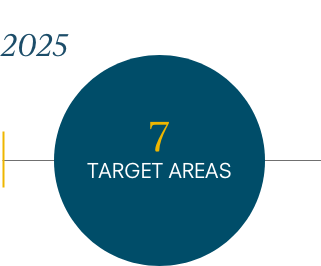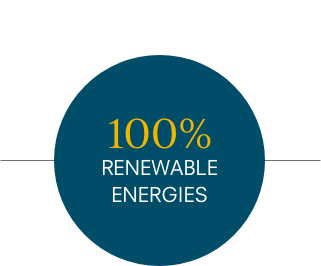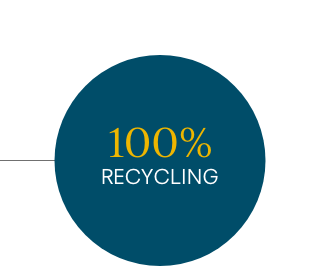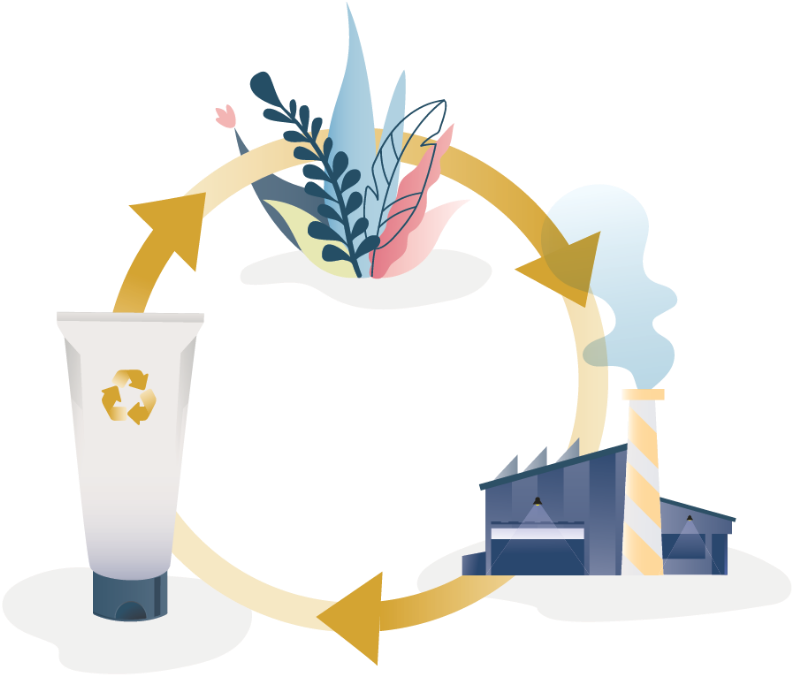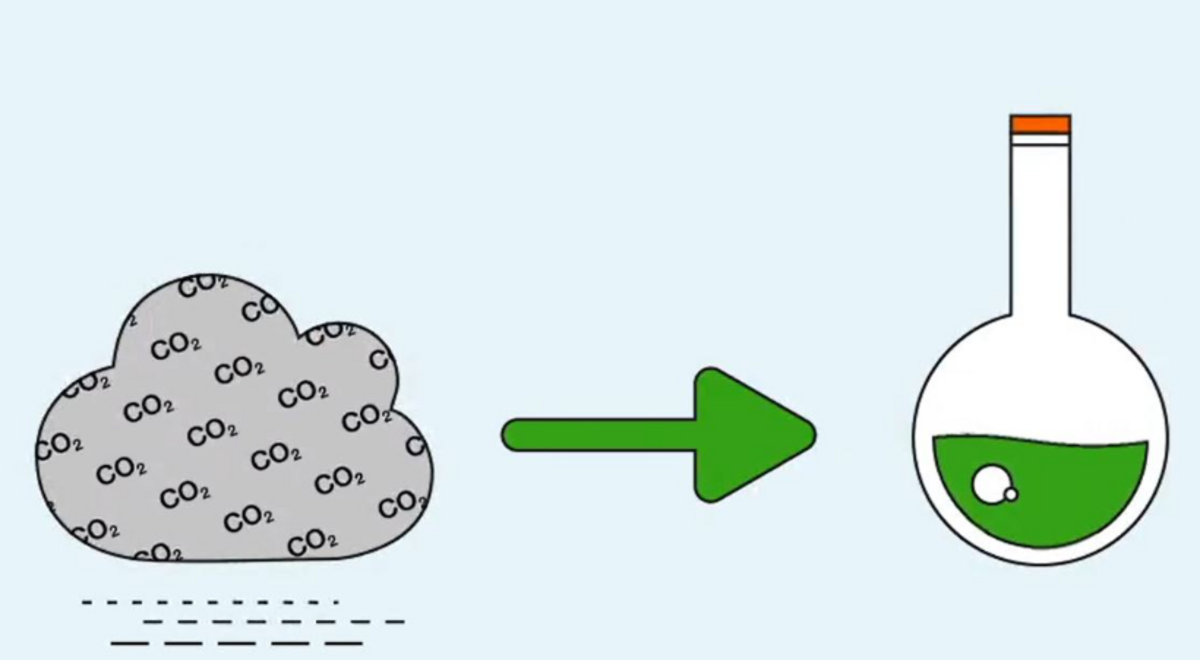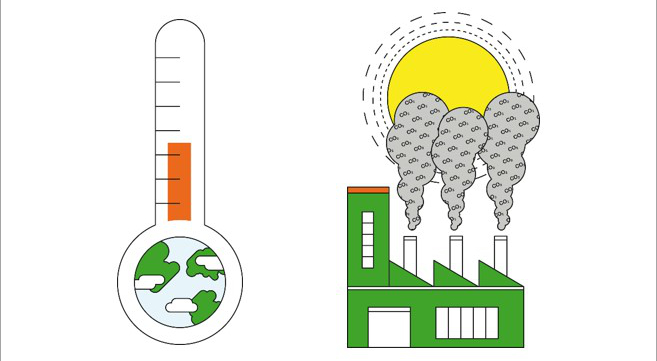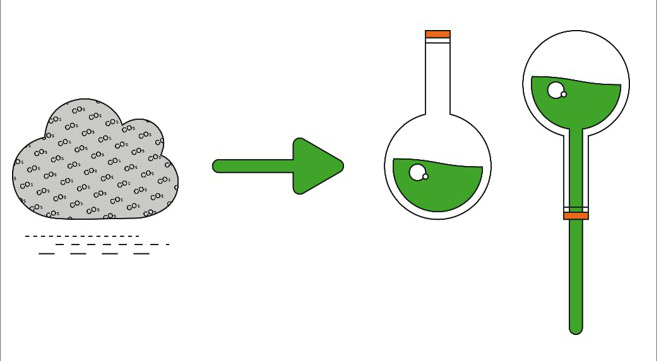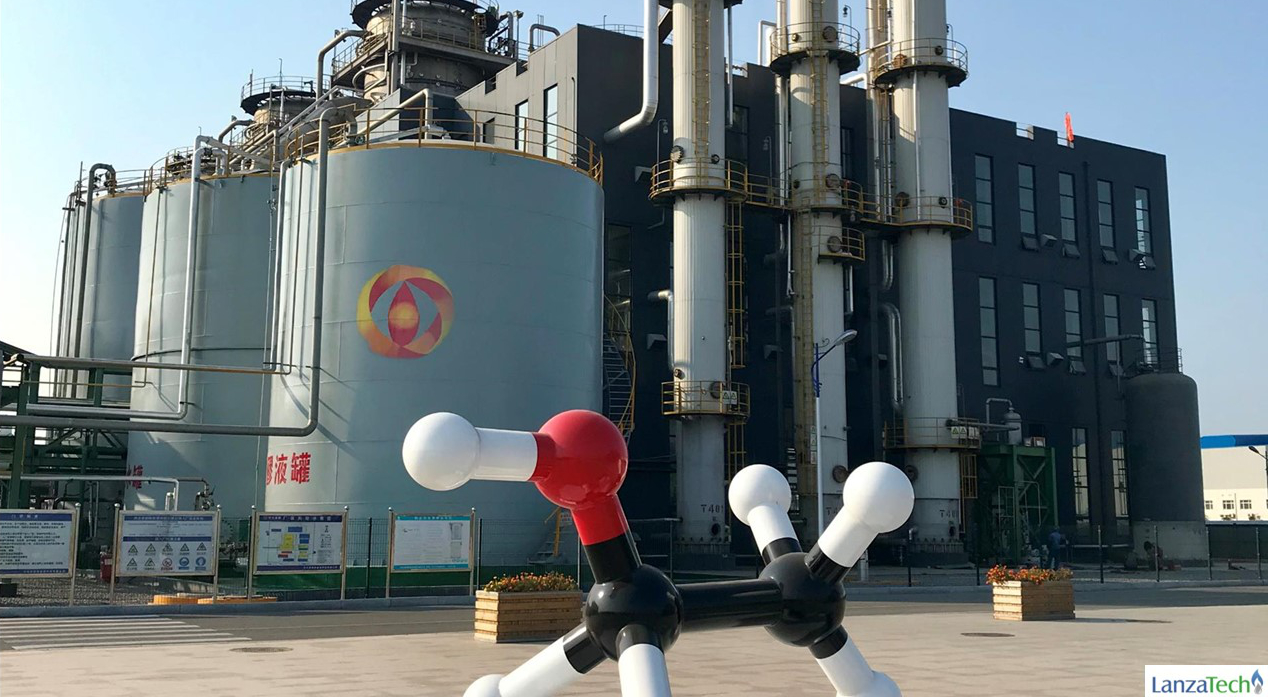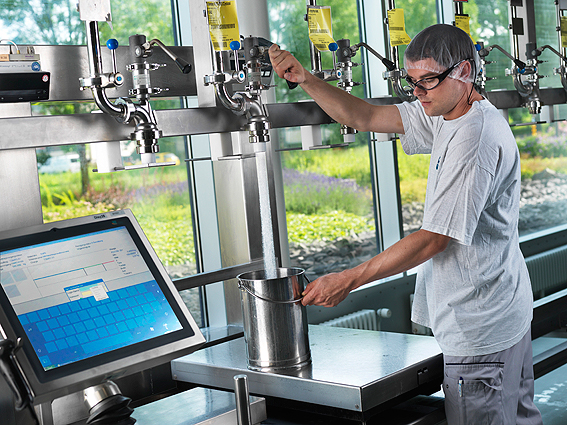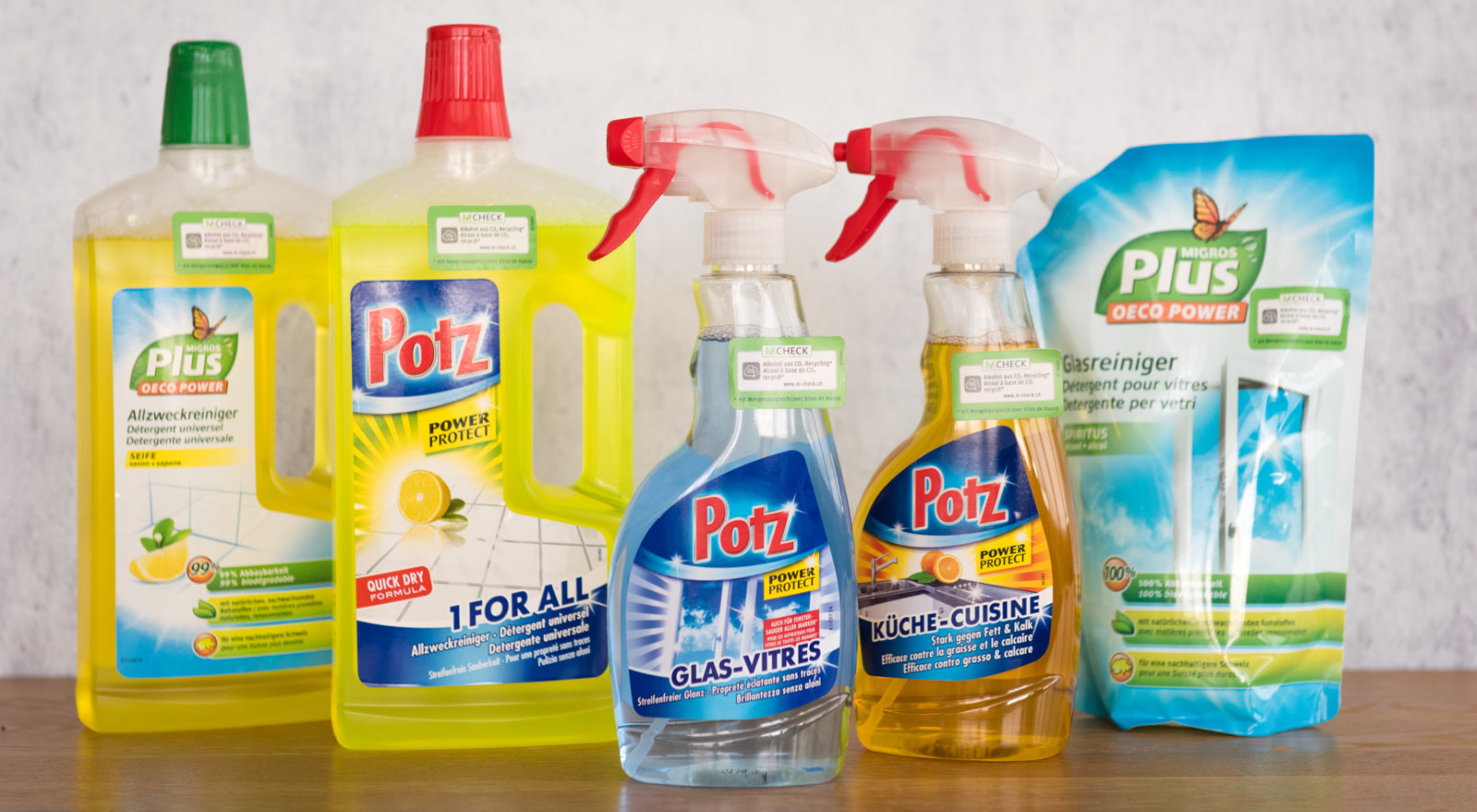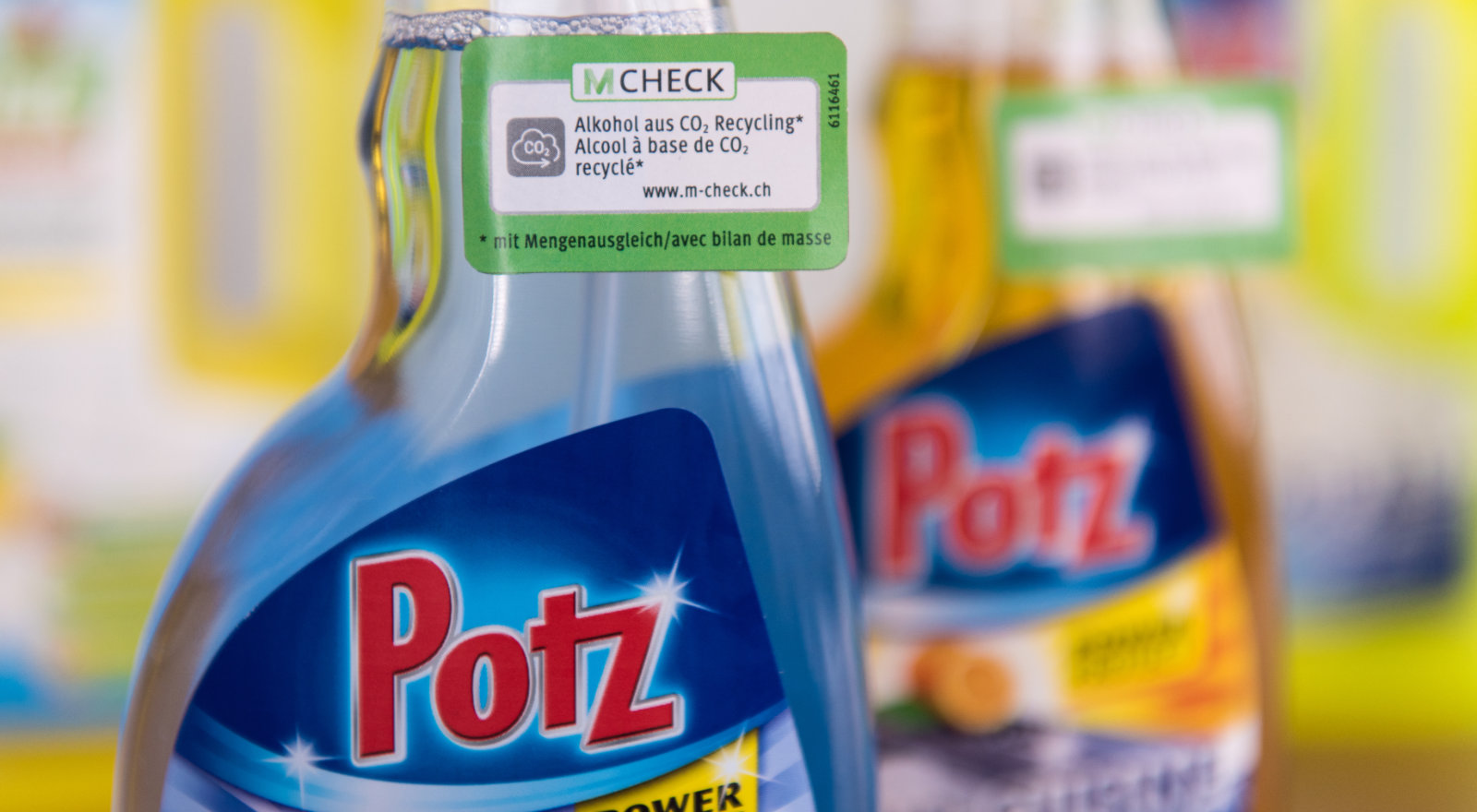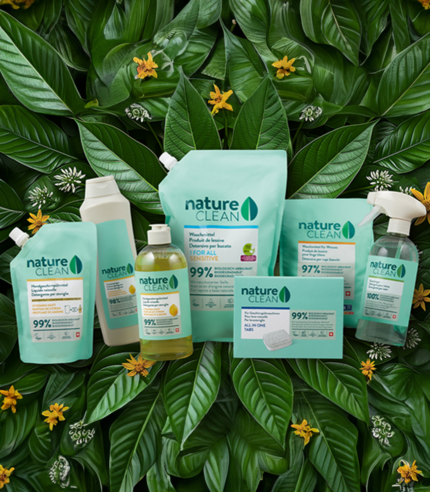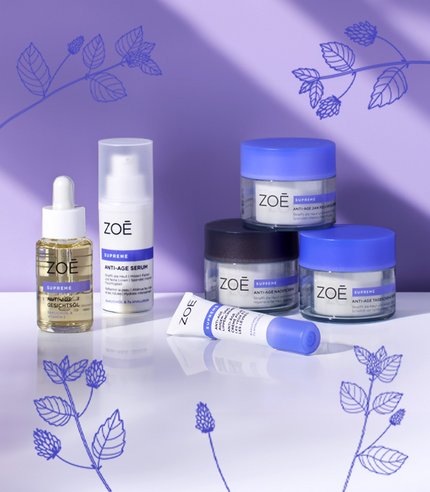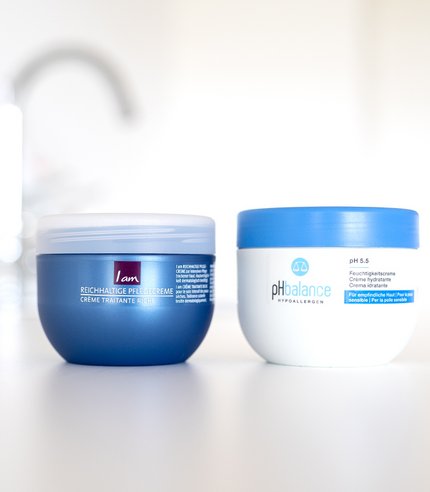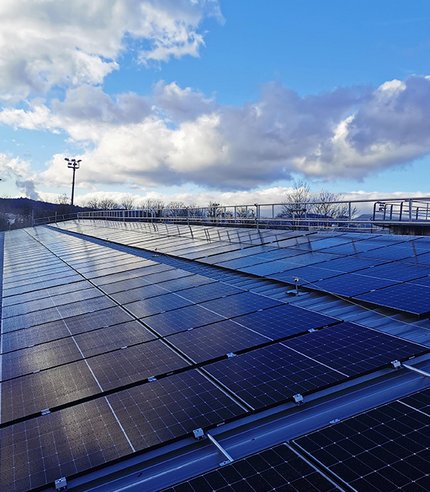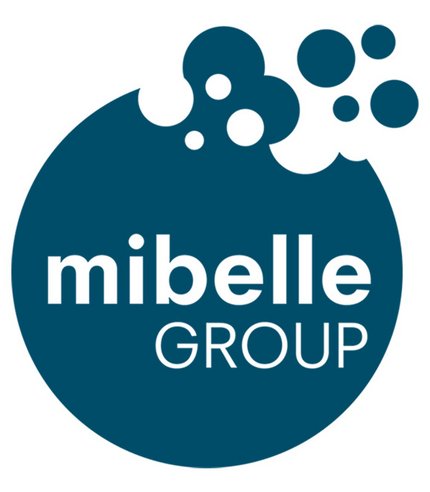Recycling CO2 on the one hand reduces greenhouse gas emissions and, on the other, the Mibelle Group is saving alcohol produced by conventional methods in the field of liquid detergents and cleaning products, whose production is normally based on plants such as sugar cane or sugar beet. This requires less agricultural land and therefore offers more space for the natural biodiversity. The innovative conversion also protects the environment and conserves valuable resources. This significant contribution to sustainability was proved in Carbotech AG’s life cycle assessment report.
How is industrial alcohol obtained from greenhouse gases?
Two years ago, the Mibelle Group started to cooperate with start-up LanzaTech to produce industrial alcohol from greenhouse gases. These days CO2 is emitted into the atmosphere from many sources, such as the steel industry, from waste incineration plants, and when we use oil for heating. LanzaTech has found a way to make alcohol from CO2 using a fermentation process that is also used to brew beer. During CO2 recycling, microorganisms are used which are able to convert the carbon dioxide directly into alcohol. The alcohol is stored in tanks and used for liquid detergents and cleaning products. [Principle of quantity offsetting]
Next milestone: Packaging from recycled CO2
The Mibelle Group sees great potential in the new CO2 recycling technology. The intention is that in the medium term the alcohol obtained from the recycled CO2 will replace all the alcohol produced by conventional methods used in liquid detergents, cleaning products and cosmetics. The technology is not only to be used for products, but also for their packaging, which mainly consists of PET and PE. Crude oil can be used to manufacture these plastics - or alcohol from recycled CO2.
The WWF also supports this innovative technology. “The use of fossil fuels must be avoided. Where this is impossible, it makes sense to include greenhouse gases in products, so that the gases don’t warm the climate further. If production of such products prevents cultivation of land for raw materials, this leaves more room for natural biodiversity. Both contribute to long-term preservation of our environment”, asserts Christoph Meili, life cycle assessment expert with WWF Switzerland.
The principle of quantity offsetting is applied for technical production reasons.



